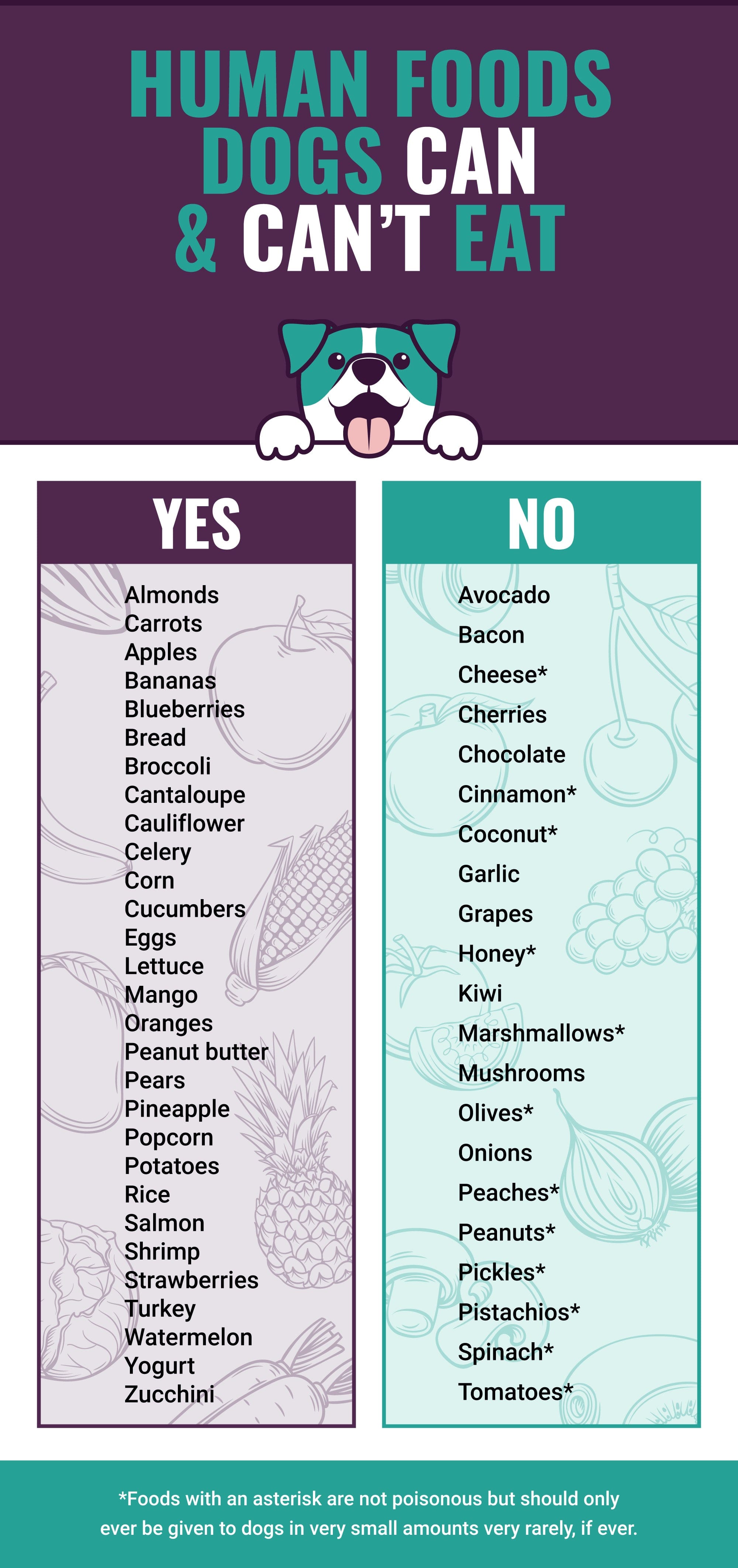As devoted pet parents, we cherish the moments spent with our furry companions, which often include sharing meals and homemade treats. A common question that arises is, “What human foods can dogs eat?” The reassuring answer is that many human foods are safe and even beneficial for dogs when prepared correctly and given in appropriate portions. This guide explores the healthiest human foods your dog can enjoy, some of which can also serve as nutritious toppers to encourage picky eaters.
What Human Food Can Dogs Eat? [With Health Benefits]
Several human foods can be safely incorporated into your dog’s diet in moderation. These include plain-cooked meats, certain vegetables, and specific fruits. It’s crucial to ensure these foods are prepared without seasonings and to remove any potential hazards like bones.
1. Cooked, Unseasoned Chicken, Turkey, or Beef
Plain, cooked chicken, turkey, and beef are excellent protein sources for dogs. Dr. Sylvia Berns, Sploot’s Medical Director, emphasizes the importance of removing all bones, even after cooking, as they can splinter and cause internal damage. Chicken is often considered the most balanced meat due to its high protein and low-fat content, making it a healthy choice for canines. Remember, while these meats are beneficial, dogs require a diverse diet for complete nutrition.
2. Cooked, Unseasoned Fish
Fish, when cooked and deboned, offers valuable protein and omega-3 fatty acids. Similar to other meats, ensure all bones are removed to prevent choking hazards.
3. Cooked, Unseasoned Eggs
Whether scrambled or hard-boiled, cooked eggs are a nutritious treat. They provide a good source of protein, vitamin D, selenium, and riboflavin, making them a healthy addition to your dog’s diet.
4. Cooked Pumpkin
Cooked and chopped pumpkin is a beneficial snack for dogs, rich in fiber and beta-carotene. These components aid digestion and can improve coat appearance. Its low-calorie and low-fat profile also makes it suitable for weight-conscious dogs.
5. Cooked Green Beans
Steamed or boiled green beans are packed with fiber, vitamin C, and other essential nutrients. Their low-calorie and low-fat content makes them an excellent treat option, especially for dogs needing to manage their weight.
6. Cooked Carrots
Cooked carrots are a delightful and nutritious option, providing fiber, vitamin A, and beta-carotene. Ensure carrots are well-cooked to facilitate easier digestion, as raw or partially cooked carrots can be challenging for dogs to process.
7. Cooked Spinach
Spinach, when cooked, is a powerhouse of nutrients including fiber, vitamins A, K, and C, and potassium. Its leafy texture means it often doesn’t require chopping and can be easily incorporated into a dog’s diet.
8. Sliced Apples – In Moderation
Apples, including their skin, can be a crunchy and healthy treat. Always remove the seeds and core, which are choking hazards. Apples are a good source of vitamins A and C, and fiber. However, due to their natural sugar content, they should be given in moderation.
9. Bananas – In Moderation
Bananas are a popular ingredient in homemade dog treats due to their potassium, fiber, and magnesium content. However, like apples, their high natural sugar content means they should be offered sparingly.
10. Cooked Oatmeal
Oatmeal is a healthy breakfast option for dogs, containing vitamin B and linoleic acid, which support skin and coat health. Its soluble fiber content also makes it a common ingredient in commercial dog food formulations.
A Note About Dogs as Omnivores & Common Dog Allergies
Understanding a dog’s dietary nature and potential allergies is crucial before introducing new foods.
1. Dogs are Omnivores
Domestication has shifted dogs from carnivores to omnivores, similar to humans. This means they can digest both plant and animal-based foods. While they can enjoy many fruits and vegetables, it doesn’t mean all human foods are safe. Cooked vegetables, especially when steamed or boiled without added fats or spices and cut into bite-sized pieces, are well-tolerated by dogs.
2. Food Allergies in Dogs
While meat-based table scraps are common treats, some dogs develop allergies to common proteins like beef, chicken, eggs, fish, and dairy. It’s advisable to introduce new foods in small quantities to monitor for any adverse reactions. Though less common, grain allergies can also occur. Consulting a veterinarian is recommended for allergy testing and management.
Final Thoughts on Human Foods That Dogs Can Eat
The human foods listed above can be wonderful, healthy additions to your dog’s diet. However, they are intended as treats and supplements, not replacements for a balanced, high-quality commercial dog food that provides all the necessary nutrients. For those seeking vet-approved options, SplootRX offers a reliable source for pet supplies.
For comprehensive veterinary care, Sploot Veterinary Care provides primary, urgent, and emergency services. With convenient locations and extended hours, booking an appointment is made easy through their app or website.
Consider the SplootPack™ membership for significant savings on essential veterinary care, including waived wellness exams and discounts on services.

